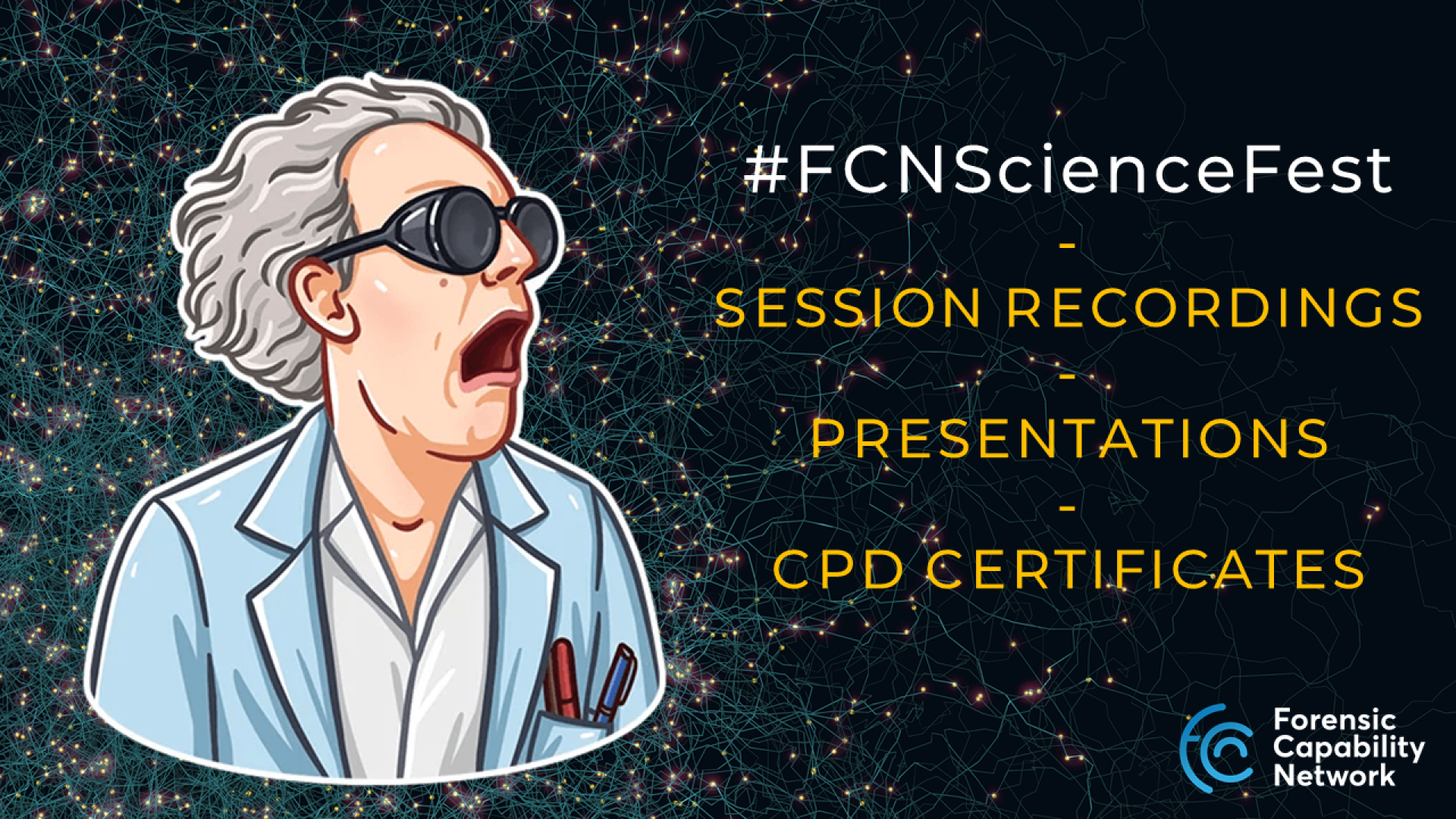Over 500 people signed-up to hear from a range of leading experts on topics as wide-ranging as vehicle telematics, mental health, forensic taphonomy and digital strategy. All the sessions are available to view as part of ongoing CPD (continuous professional development).
The festival was the brainchild of FCN Research & Development manager Dr Carolyn Lovell. She said:
“Like any branch of science, police forensics depends on academic research to develop new techniques. There’s so much great work being done across the country, but it’s hard for frontline forensic staff to stay on top of it. The idea of the festival was to bring the two worlds of academia and policing together to showcase ideas that could have an impact on frontline forensic practice. We know that practitioners are always busy, so the sessions are all available to watch at a convenient moment. We’ve also allocated an hour of CPD for each session, with the added bonus of a certificate for your records.”
Professor Paul Taylor, the National Policing Chief Scientific Adviser, opened the festival with a stirring rallying call:
"This is exactly the sort of thing we need within policing...if all of our work succeeds, we’re not being ambitious enough”
A packed schedule featured sessions covering digital and physical forensics as well as forensic strategy. You can find the recordings, as well as the CPD certificates and copies of the presentations on our website here.
Digital forensics
- Forensic 3D imaging and printing: adding another dimension to future practices – Dr. Rachael Carew, Dr Amber Collings
- Developing a digital evidence strategy – Dr Graeme Horsman, Teesside University
- Forensic applications of 3D Scanning – Dr Richard Matthews, University of Adelaide
- Triage Works! The Effectiveness of Digital Forensics in Operation Safenet Child Sexual Exploitation Cases – Professor Claire Gwinnett
Physical forensics
- Fingerprinting-the new frontier: breaking barriers to implementation – Prof Simona Francese, Sheffield Hallam University. Read our in-depth interview with Prof Francese here
- ‘Fly’ing into the future: multidisciplinary research in forensic taphonomy – University of Portsmouth
- Navigating the cadaveric island: integrating forensic taphonomy, archaeology and crime scene science in research and praxis – Patrick S. Randolph-Quinney PhD, Northumbria University
- A look at the state of the art in Vehicle Forensics – Gareth Davies, South Wales University
- Fibre evidence: addressing the difficult questions of when and how an incident occurred – Dr Kelly Sheridan, Northumbria University
- Can fingerprint evidence be recovered from surfaces exposed to corrosive substances? – Dr Steve Bleay, London South Bank University
Forensic strategy
- Evidencing ‘Gut Feelings’ for Organisational Change – Dr Rachel Bolton-King & Matt Woodhead
- Maintaining the Ecosystems of Niche Forensics – Karl Harrison, Alecto Forensic Services
- 5 years of CSI Competency assessment – Dr Anya Hunt, Chartered Society of Forensic Sciences
- The effects of trauma exposure on Crime Scene Investigators, is it time for a new approach? – Rebecca Jones, Anglia Ruskin University
